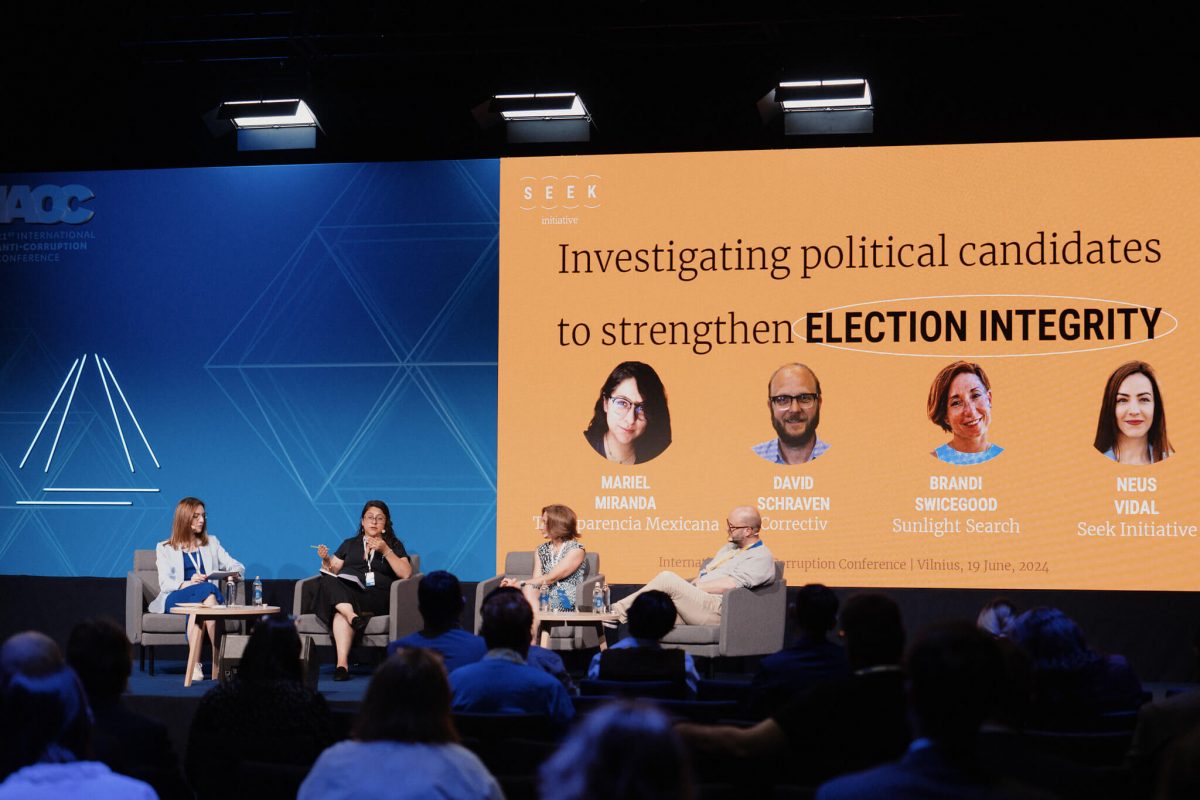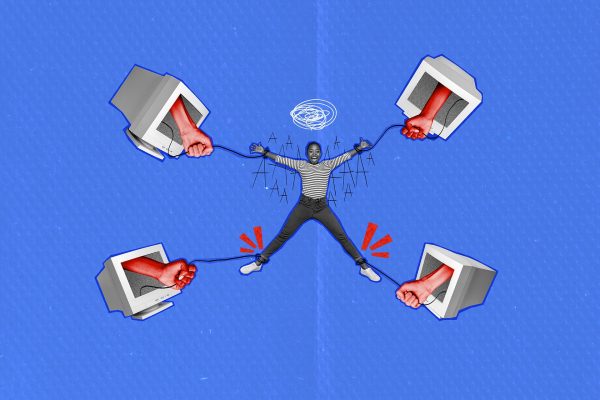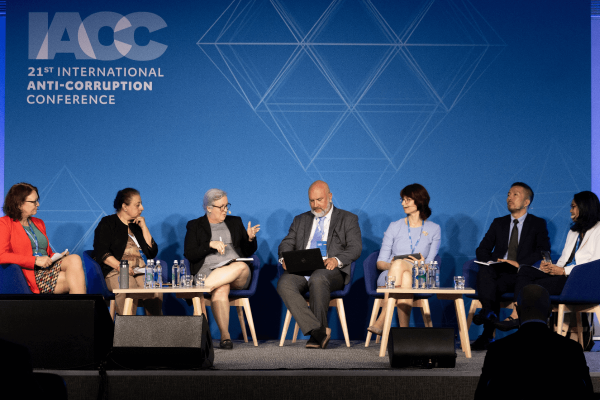The presence of politicians with shady backgrounds, if not overt criminal connections, in governments and elected positions continues to be an ever-present problem around the world.
Yet there is more scrutiny of elected officials than ever before. Investigative journalists and civil society increasingly pore over years of financial records and business ties to ensure everything is above board. Personal histories are no longer ignored, as stories of gender-based violence or outstanding child support debt have dogged certain politicians.
Even if these investigations are not always successful at preventing such candidates from being elected, experts from Mexico, the United States and Germany at the 2024 International Anti-Corruption Conference (IACC) in Lithuania all agreed these revelations were needed to strengthen democracy and prevent corruption.
Mariel Miranda from Transparency International Mexico spoke of the success of the 3de3 initiative. Since 2015, 3de3 has become a virtual requirement for those seeking to be elected in Mexico. It demands they voluntarily publish three declarations revealing their assets, their tax records, and any special interests they may have that could affect their political decision-making.
For Miranda, such efforts are sorely needed in a country that ranks 126th out of 180 countries on Transparency International’s 2023 Corruption Perceptions Index.
And while 3de3 has gained traction, according to Miranda, deficiencies within Mexico’s political supervisory bodies have prevented the official monitoring of irregularities in politicians’ assets or income.
This situation, said Miranda, has generated a “very valid” perception of impunity among the voting public. Moreover, increasingly common connections between politicians and organised crime, from the federal level down to the hyper-local level, have made the situation more challenging.
“Of course, we question if they are lying to us, if the assets they have upon entering office do not match what they have when they leave, or if there are clear signs of enrichment. We see that necessary measures are not being taken to start investigations and impose sanctions,” she explained.
Last March, as Mexico was gearing up for its presidential election, journalists from Mexican outlet, POPLab, revealed an alleged illicit enrichment network based in the small municipality of Asientos in the central Mexican state of Aguascalientes. The journalistic investigation claimed the town’s mayor was reportedly implicated to be part of an alleged complex enrichment scheme in which unexplained donations of over 90 million pesos (US$4.8 million) from public funds were made. This led to Aguascalientes’ public prosecutor’s office opening an investigation against him which has not concluded.
Notwithstanding, the mayor recently won re-election in June.
Similar cases, where candidates secured power despite severe allegations of criminal activity, can be seen across Mexico.
In 2021, a senator from the southern state of Guerrero, Félix Salgado Macedonio, ran in the governor’s race for his home state. During his campaign, he faced severe accusations of sexual abuse and harassment. He would eventually drop out of the race after being unable to provide a report on his pre-campaign expenses.
The investigations into Salgado Macedonio were dropped as the accusations were deemed to have been made outside Mexico’s statute of limitations. He returned to his position in the Mexican Senate where he represents Guerrero to this day.
There are signs of hope. In July 2023, the 3de3 Law was constitutionally approved, prohibiting individuals sentenced for domestic violence, sexual assault, or delinquent child support payments from holding elected positions.
However, in a judicial system where impunity prevails, and in a context where the official narrative seems to erase any negative background of candidates, it remains to be seen if this new law will be adequately enforced.
“I believe that in terms of providing solutions, the best thing we can do is provide information so that voters can make informed decisions. We cannot control the decisions they will make, but we can offer them all the facts for their use in making decisions,” said Brandi Swicegood, an investigative journalist with the US project Sunlight Search, at the IACC.


